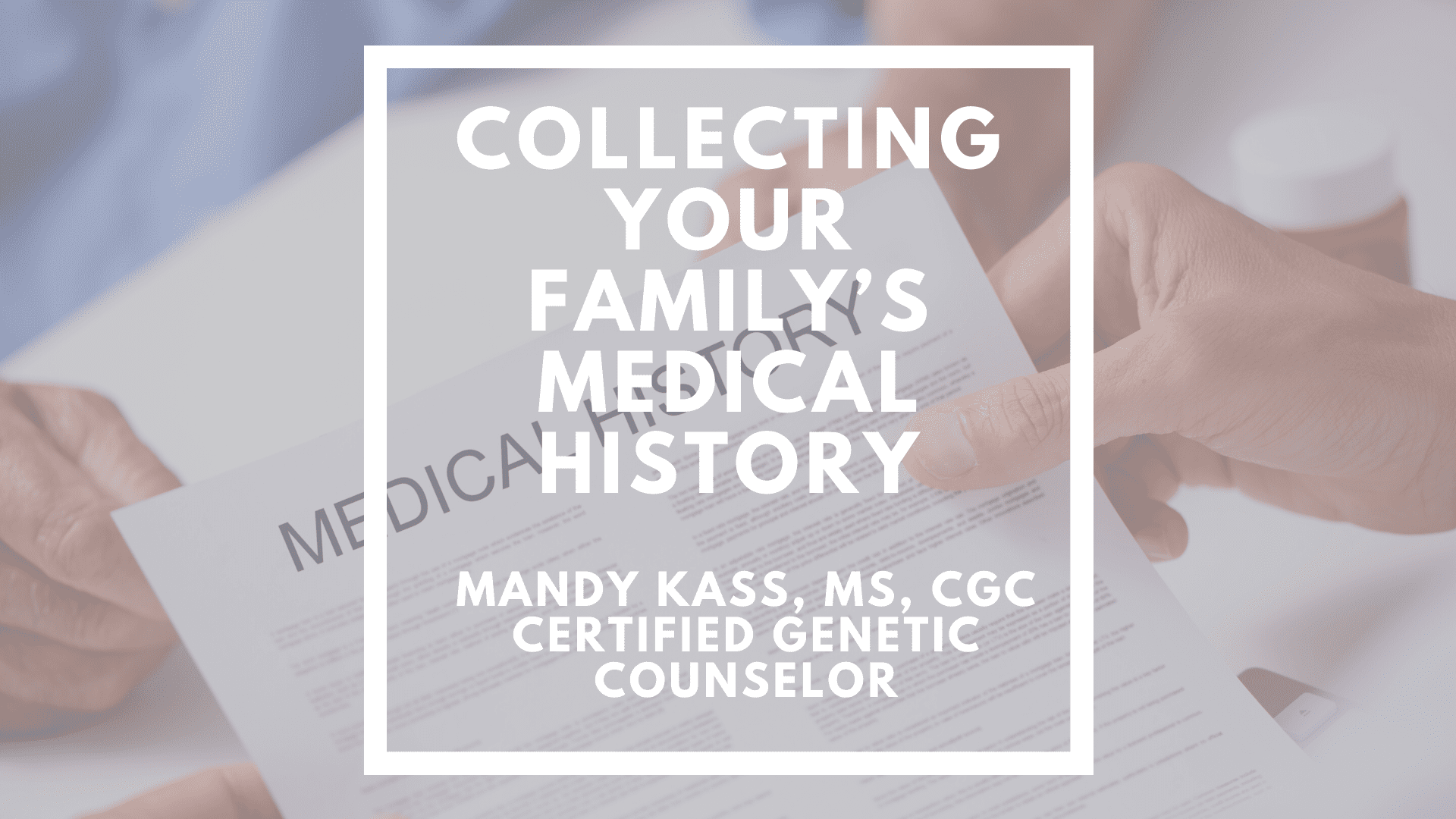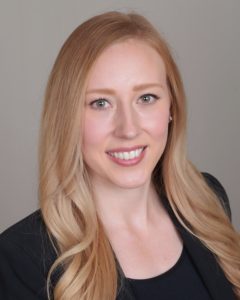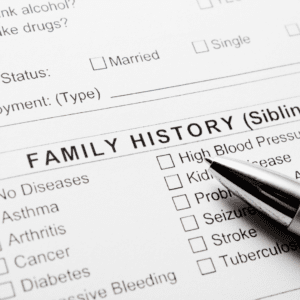
Posted 4 years ago
Collecting Your Family’s Medical History
Families share many traits – such as genetics, environment, and lifestyle. This in turn can lead to clues for your healthcare providers about medical issues that may run in your family. By noticing certain patterns of medical issues among your relatives, your doctor or genetic counselor can help determine whether you, your family members, or even future generations may be at an increased risk of developing a particular condition. There are several key things to be aware of when collecting your family’s medical history:
WHO should be included in my family medical history?:
A family medical history is a record of health information about you and your family. Ideally, this type of history includes details about three generations of family members, including children, siblings, parents, aunts/uncles, nieces/nephews, grandparents, and first cousins. If you are able to gather information about more distant relatives, that’s great too – but keep in mind that the more distant a relative is, the less shared genetic factors you have. So if you can’t trace your family tree all the way back to its roots, that’s okay! It’s important to also consider both sides of your family equally. Hereditary cancer syndromes, such as hereditary breast and ovarian cancer syndrome caused by BRCA1/2 gene mutations, are not only found in women – men carry these mutations too. So a family history of breast cancer on Dad’s side is just as important as a family history of breast cancer on Mom’s side.
WHAT information is important?:
First, focus on determining the cause of death for anyone in your family that has passed away. For relatives that have passed, it’s important to also try to find out what their health history was like while they were alive. For example, a relative may have passed from heart disease at age 80, but also had cancer at the age of 50. If s
omeone in your family has had cancer, try to find out what age they were diagnosed with cancer as well as the primary (original) site of the cancer. If you’re having a hard time gathering this type of family health information, sometimes documents such as obituaries and death certificates can help fill in the gaps.
WHERE should the information go?:
Try to keep this family health history information up-to-date and share it with your healthcare providers so they can make appropriate recommendations if needed. Please also share what you learn about your family history with other family members so they can provide their doctors with this important information. And remember, every bit of information is helpful, even if the family health history is not complete!
It can be awkward to bring up medical issues with relatives, but gathering this type of information could help save your life and the lives of your family members. If you are at an increased risk for certain cancers, your doctor may recommend that you meet with a genetic counselor to discuss the possibility of genetic testing. If you are found to have an inherited predisposition to cancer, increased screening, risk-reducing surgeries and medications, and adopting a healthier lifestyle may help lower your chances of developing certain cancers. It may take some time and effort, but having this family medical history available can help improve the health of your family for generations to come.
Mandy Kass, MS, CGC

The ultimate goal of cancer genetic counseling is to empower patients to use their personal risk information to better inform treatment and management decisions and to educate family members on their possible cancer risks.
Mandy obtained her Bachelor of Science degree in Psychology from Arizona State University in 2013. She then went on to pursue her Master’s Degree in Human Genetics from Sarah Lawrence College and graduated in 2016. Her training in genetic counseling included clinical rotations at several locations throughout New York City, including Columbia University Medical Center, Mount Sinai Beth Israel, and Bellevue Hospital.
About Ironwood Cancer & Research Centers
Ironwood Cancer & Research Centers (ICRC) is the largest multi-specialty oncology network in the Greater Metro Phoenix area. They have over 100 medical providers, a robust Integrative Services program, and a dedicated clinical research department. Ironwood Cancer & Research Centers has 15 valley locations and five comprehensive cancer care centers that offer a multi-disciplinary approach for expedited personalized patient care. For more information, please visit www.ironwoodcrc.com.

